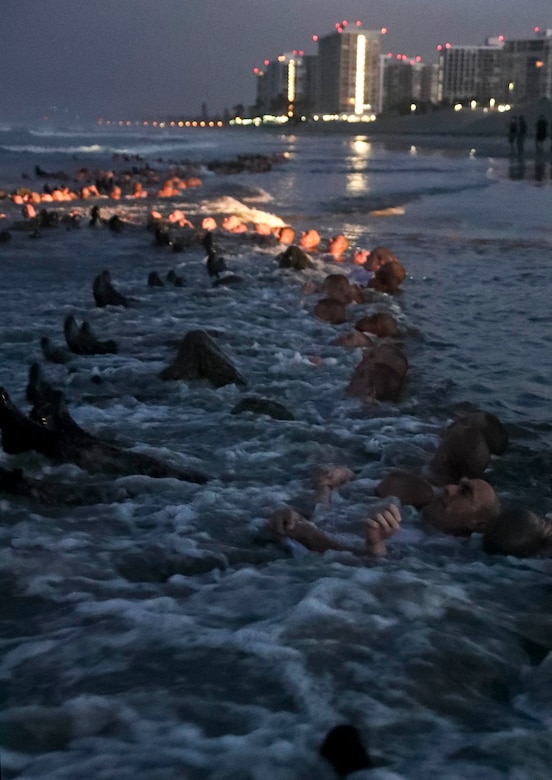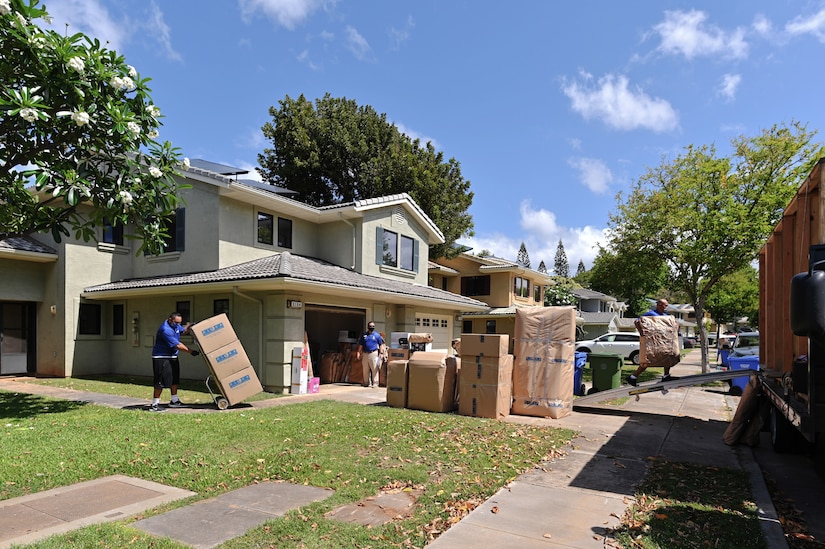May 6, 2020 | BY C. Todd Lopez , DOD News
A new contract to facilitate the movement of household
goods, an integral part of any move to a new duty location, is expected to make
things easier for both service members and their families.
The U.S. Transportation Command awarded the contract to
American Roll-On Roll-Off Carrier Group Inc. on April 30. The first move under
the new contract won't take place until February, Transcom's director of
acquisition said at a news conference today.
"The ... contract is an important component of
improving service members' experiences during the relocation process, and
fundamentally restructures DOD's relationship with the household goods industry
in order to improve access to, and management of, quality capacity to meet peak
demand and enable the department to fix the accountability and responsibility
lacking in today's program," Ken Brennan said.
The New Jersey-based business was chosen for the contract
because the proposal the company submitted provided the best service for the
best value for service members, Defense Department civilians and their
families, Brennan said, adding that the carrier group beat out six other
competing proposals.
Rick Marsh, the director of the defense personal property
program at Transcom, said the new contract will bring great benefit to service
members and their families.
Right now, he said, there's no single contractor the DOD
uses to move household goods. As a result, he said, no portion of the industry
is motivated to spend money to enhance the service they provide to service
members and their families.
"There is ... no rationale to invest in quality
suppliers and invest in your network," Marsh said. "You can't
forecast the work that you're going to perform. Our current model leads to
using day laborers and other folks that maybe aren't as well-trained as moving
professionals should be."
By centralizing the work in one company, he said, DOD lets
industry know what the demand is for household goods movement, and that allows
for investment.
"They can hire and invest in very highly trained
employees to come into service member homes to handle pack out or
delivery," he said.
As far as accountability is concerned, he said, the
department has more than 300 personal property offices at installations and
another 42 shipping offices around the world that will have formally-appointed
contracting officers and quality assurance evaluators.
"We're going to be working off of a centralized quality
assurance surveillance plan to ensure we have accurate, rigorous oversight over
the contract," Marsh said.
For families who have issues with their move, he said, there
will be new avenues to rectify problems.
"I would say most of the issues that we have in our
current program revolve around communication," he said. "We're going
to be able to bring tools to the table that we simply can't deliver today under
the current program, to be able to put families in touch with representatives
from industry faster — to make the claims process much cleaner, much simpler,
and for them to be, to have it settled and to be made whole ... much faster
than they are today."
Currently, because of the COVID-19 pandemic, many service
members are unable to relocate as they might have expected during the summer
months, while others will be allowed to move if granted an exception, Marsh
said. For those who are allowed to move under such an exception, efforts will
be made to protect both families and movers from COVID-19.
"In an effort to protect the force and deliver a safe
moving experience to DOD families, DOD has directed a series of health
protection measures for personnel moving during the stop-movement period,"
he said.
DOD has directed that industry personnel adhere to the
Centers for Disease Control and Prevention's health protection protocols, Marsh
said. That includes wearing face coverings, minimizing crew sizes, cleaning
frequently-touched surfaces and practicing good hand hygiene while conducting
moves in family housing.
Additionally, Marsh said, moving crews will need to verify
the health of their teams upon arriving at military families' homes.
"When a moving crew arrives at the curb for a pack out
or delivery, moving companies will present written verification that members of
the crew have been screened for illness and will be properly equipped to adhere
to these protocols," Marsh said.
If a family does have concerns about the health of the team
that arrives to move their household goods, Marsh said, they are also empowered
to ask those movers to not come into their home.
"If families aren't comfortable, they should stop work
and reschedule their move," he said. "A DOD representative will
contact every DOD member during every move, in-person or virtually, to ensure
protocols are being followed. And if something's not right, local transportation
offices and the personnel's chain of command will get involved to make it
right."










